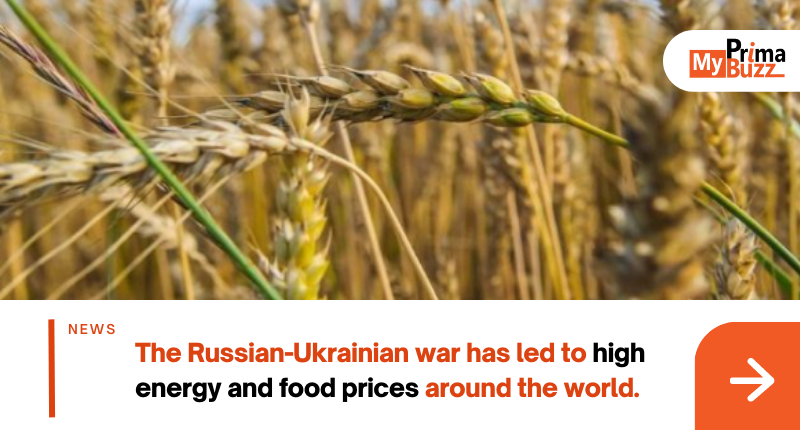Russia and Ukraine play an important role in global food production and supply. Russia is the world's largest wheat exporter, while Ukraine is fifth. The two countries together account for 19% of global barley supply, 14% of wheat supply and 4% of maize supply, and account for more than a third of global grain exports. The two countries are also major suppliers of rapeseed, accounting for 52% of the world sunflower oil export market. In the same highly concentrated global fertilizer supply landscape, Russia is the main producer.
Disruptions to Ukrainian and Russian grain and oilseed production supply chains and logistics, as well as restrictions on Russian exports, will have a major impact on food security.
The Russian-Ukrainian war has caused a further shock to fragile economies already mired in debt crises due to the coronavirus pandemic. Dozens of countries are estimated to be in economic distress and have been forced to turn to the International Monetary Fund for help.
In Sri Lanka, which was in deep economic crisis, 26 cabinet members resigned collectively on the 3rd of this month; on the same day, the Pakistani National Assembly was dissolved and the Prime Minister was dismissed. Other countries such as Turkey, Tunisia, Egypt, Ghana, Kenya and other countries that import most of the fuel oil, natural gas and basic food are also facing enormous pressure.
Prices of basic foodstuffs such as wheat and corn have risen by 25% to 40% so far this year. Some countries have turned to the International Monetary Fund for help, while others have continued to slide in value.
The core factors of the influence of the Russian-Ukrainian war
LACK OF LABOR

The grain harvest season will begin in June, but it is uncertain whether Ukrainian farmers will be able to harvest the crops and ship them to the market. Large numbers of people have been displaced, and the number of agricultural laborers has been greatly reduced. At the same time, it will be difficult to enter the farmland to work, and livestock and poultry breeding and fruit and vegetable production will also be restricted.
Transportation is blocked
Ukraine's Black Sea ports have been closed. Even if the inland transport infrastructure is intact, a non-functioning rail system will hinder the movement of food by rail. Ships can still pass through the Turkish Strait, an important trade point through which large quantities of wheat and corn are transported. Rising insurance premiums in the Black Sea region will push up already high shipping costs, further impacting the cost of food imports. In addition, it is unclear whether storage and processing facilities will remain intact and staffed.
Russia's Black Sea ports remain open for now and are not expected to have a major impact on agricultural production in the short term. However, the financial sanctions against Russia have already caused significant depreciation, and if the sanctions persist, productivity and growth will be undermined, ultimately raising the cost of agricultural production even further.

